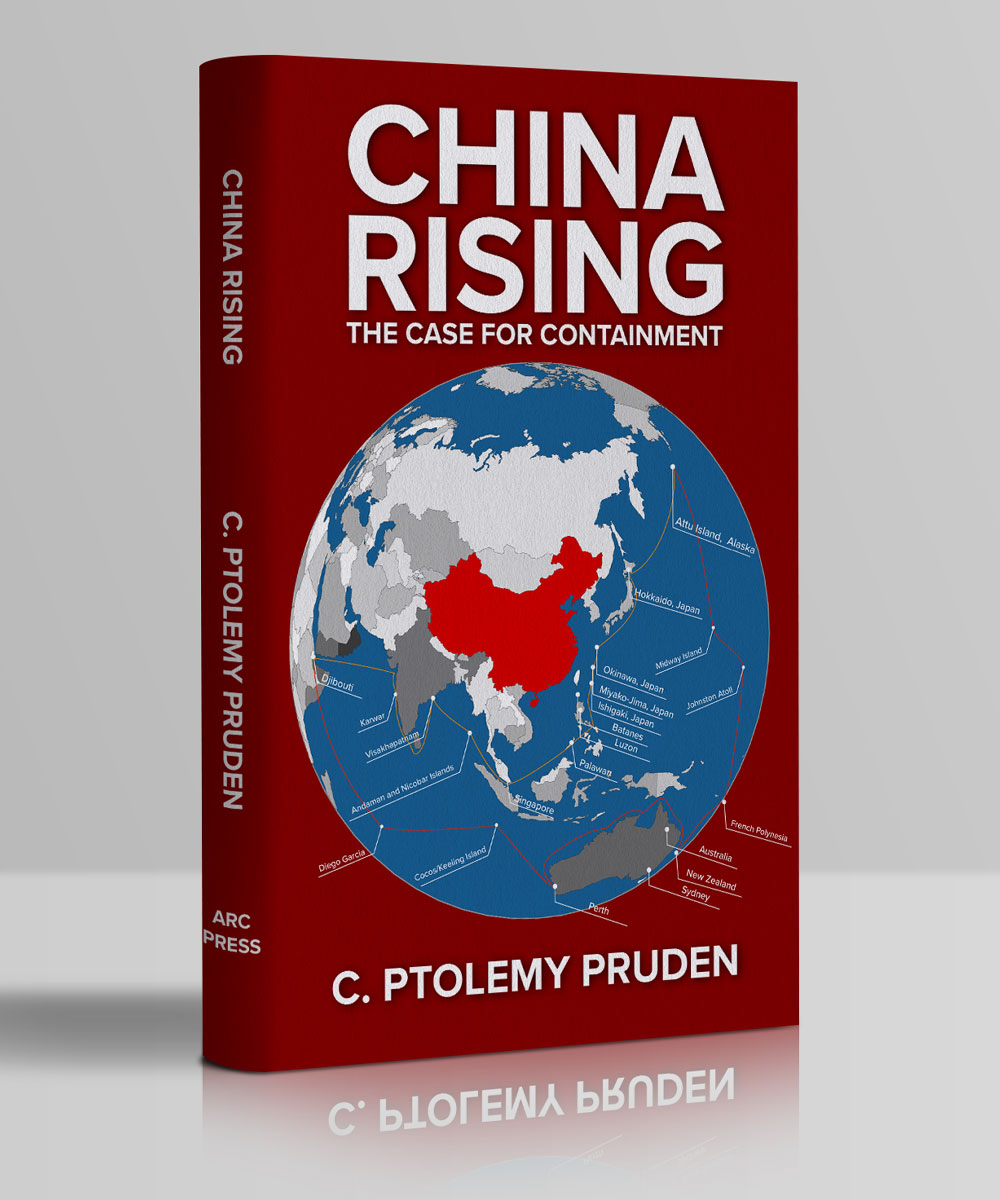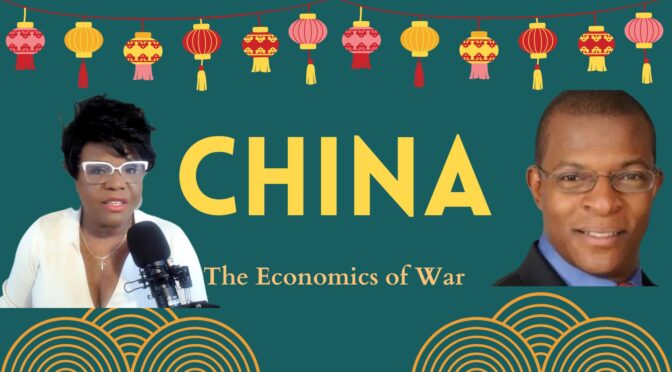This blog looks at the economics of war, with China's rapid, economic growth, and expanding global influence, this have raised concerns about the potential for conflict and the need for containment. In this article, we delve into the key themes discussed in the podcast episode. We explore the history and policies of China, the role of technology in warfare, and the case for containment. By understanding these issues, we can better comprehend the challenges posed by China's rise and work towards a more secure future.
About the guest
Ptolemy Pruden is the author of the book “China Rising: The Case for Containment” and the host of “The Common Sense Defense” podcast. He is an expert in national security issues and focuses on educating everyday Americans about the importance of China's global expansion and its impact on families and children. Pruden has a deep understanding of China's history, policies, and economic strategies, and he aims to raise awareness about the need for strong defense policies to prevent conflicts and maintain peace.
Download the full episode here:
In this episode on China you will learn:
- China's economic growth, has been accompanied by a shift in its policies towards greater assertiveness and expansionism.
- The use of technology in warfare has transformed the nature of conflict, with rapid decision-making and automation playing a crucial role.
- Containment is seen as a necessary strategy to prevent conflict and maintain stability in the face of China's ambitions.
China's Rise: History and Policies
China's rise as a global power can be traced back to the establishment of the People's Republic of China in 1949. Under the leadership of Xi Jinping, China has pursued a policy of aggressive expansionism, aiming to become the dominant global power by 2049. This shift in policy has been marked by the militarization of disputed territories, crackdowns on dissent, and the imposition of control over minority groups.
China's economic growth, has been a key driver of its rise. By investing in infrastructure projects and securing access to raw materials in other countries, China has become the world's second-largest economy. However, this economic success has also fueled concerns about China's intentions and its ability to exert influence over other nations.

Technology and Warfare: The Changing Landscape
Technology has revolutionized the nature of warfare, with rapid advancements in areas such as artificial intelligence, machine learning, and quantum computing. Quantum computing, is a multidisciplinary field that uses quantum mechanics to solve complex problems faster than classical computers. It involves aspects of computer science, physics, and mathematics, and includes hardware research and application development. These developments have enabled faster decision-making and the automation of certain military processes. In the context of, China's rise, technology plays a crucial role in both offensive and defensive capabilities.
The use of technology in warfare has also raised concerns about the potential for cyberattacks and espionage. A cyberattack is any intentional effort to steal, expose, alter, disable, or destroy data, applications, or other assets through unauthorized access to a network, computer system or digital device. Threat actors start cyberattacks for all sorts of reasons, from petty theft to acts of war China's control over technology companies and its alleged involvement in activities such as spying through apps like TikTok have heightened fears about the security implications of its rise.

Staying out of war
Collectively we can stay strong and stay out of War. I think inevitably the most important thing that we want to do is stay out of War. Americans are tired of War, we've had war after war after war and and I think we're tired of tired of War, but to accomplish being free from war you have to have policies in place and capabilities in place. So that people respect you, and they don't want to go and push your buttons.
So China which came to into being from 1949 the People's Republic of China, they have grown amazingly over the last nearly 90 to 100 years to where they are today. They have gotten stronger particularly since Xi Jinping has been in power. Since 2012 they have expanded the way that they want to influence the world, from just being a economy that just grows which called we called a peaceful Rise. We started communicating and trading with China and kind of built up their economy, starting in 2012 when they entered into World in 2000 World Trade Organization their economy just shot up big time.

War and The Case for Containment
Containment is seen as a necessary strategy to prevent conflict and maintain stability in the face of China's ambitions and war. By working with allies and leveraging collective resources, countries can create a stronger deterrent against Chinese aggression. This includes investing in military capabilities, such as upgrading existing ships and developing new technologies.
Economic measures also play a role in containment. By reducing dependence on Chinese goods and companies, countries can limit China's economic power and influence. This requires a shift in consumer behavior and a greater emphasis on supporting local industries.
Containment is not about isolating China or engaging in a direct confrontation. It is about setting boundaries and ensuring that, China's rise, does not come at the expense of regional stability and the rights of other nations. By adopting a proactive approach, countries can work towards a more secure future while maintaining diplomatic and economic ties with China, thus preventing war.

Conclusion
China's rise, as a global power presents both opportunities and challenges. Understanding the history and policies of China, the role of technology in warfare, and the case for containment is crucial for navigating this complex landscape. By working together and adopting a proactive approach, countries can mitigate the risks associated with war from, China's rise, and ensure a more stable and secure future.
As we continue to grapple with the implications of, China's rise, it is essential to remain vigilant and informed. By staying engaged and actively participating in discussions surrounding China's policies and actions, we can contribute to shaping a more balanced and peaceful world order.

